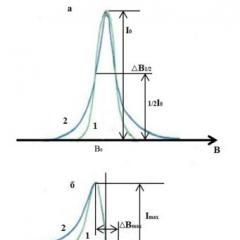A true esthete. Esthete - it sounds proudly! Discard obscene language
How often it happens in our world, when a concept is used both for business and not for business, then words get dragged out and lose their meaning! This happened with the words aesthetics and esthetics, which came to our language from the fertile ancient Greece.
Aesthetics and aesthetics are not abusive words
Aesthetics, in the original sense, is a philosophical, bookish concept that reveals the essence of the process of a person's knowledge of the world through his sensory perceptions. That is, an esthete is a person who is able to feel.
And since there are no people in the world who are incapable of feeling, then we are all aesthetes in the philosophical understanding. The opposite of an esthete is a logician. And there are few such people, but for some reason it is they who are scolded with the word "esthete" in our time.
Beauty and expediency
Nature strives for purposefulness, which means - for beauty. So once Aristotle counted and wrote down this thought, but after thinking a little on this topic, he moved on to other questions. And after him, his followers made an axiom out of this almost random phrase of his. And a dead-end philosophical trend arose. Over the century, it descended into emptiness, but their words were picked up by the artists, and it turned out that an esthete is no longer any person, but some kind of a world that feels subtly in a special way.
Philosophers gave artists these terms to use and took up deeper questions. And the words went for a walk among people, until they acquired an ironic, dismissive connotation. Now, for most ordinary people, an esthete is the person who is not understood by others, because, in his opinion, they are all too rude. In the Russian language, there is an exact term to define such a thing - "with a fool", that is, a person behaves this way without the purpose of deceiving someone for the benefit of himself, but just like that, on a whim, because he cannot live differently.

But be that as it may, but beauty and purposefulness exist in the world. The connection between these concepts is doubtful, but the artists nevertheless systematized them as best they could. They are usually at odds with logic, therefore the world of the esthete, in the artistic sense of this phrase, is ambivalent and pretentious.
Aesthetics is the science of beauty
When philosophers returned to a topic that had been abandoned for 2000 years, at the beginning of the twentieth century they formed a science of beauty for artists - aesthetics, with the help of which they try to find out: why one person considers beautiful, and another - ugly? And we have achieved some successes. It turned out that the object itself is neither beautiful nor ugly. He becomes such only in the feelings of a particular person. Then the philosophers singled out a special type from the general mass of mankind and called these people aesthetes.
Most of us accept the canons of beauty into our inner world for up to 5 years as we are brought up and then follow them until the end of our lives. And the esthete is the one who forms the canons of beauty for himself, and not until the age of 5, but until the end of his life. Such people make real artists, pioneers, maddenedly in love and other restless personalities.
A normal portion of aesthetics is good for everyone
If you exclude the concepts of beautiful and aesthetic from a person's life, then he grunts like a pig the next day. It is beauty that often keeps us from doing ugly things. Some do not even hang themselves just because a person does not look aesthetically pleasing during this action.

And people of art, for example actors in theaters, even try to quarrel among themselves beautifully and aesthetically. Most would take an example from them in this, and not in anything else. The same actor's upward "can hardly be called beautiful.
Normally, designers have grasped the meaning of aesthetics. They make household and useful things attractive in appearance. And it's nice that at the same time they do not pretend to be exclusive and do not lecture us. But the workers of the so-called haute couture are overplaying a little. After all, aesthetics is not a mockery of And then from the cloying of their research sometimes turns back. For example, a woman should not, no matter what claims, look like a nail. The law does not exist for geometry.
So, everything that is not in moderation is not healthy, even beauty.
ESTETH ESTETH (from the Greek aisthetes - feeling - perceiving), .. 1) a fan of art, a connoisseur of the graceful
2)] A person who evaluates everything exclusively from an aesthetic point of view.
Big Encyclopedic Dictionary. 2000 .
Synonyms:See what "ESTETH" is in other dictionaries:
Esthete- (Essentuki, Russia) Hotel category: Address: 40 Internatsionalnaya Street, Essentuki, Russia ... Hotel catalog
Characterized by a developed taste and a subtle understanding of beauty; lover of everything graceful. Complete Dictionary foreign words, which have come into use in the Russian language. Popov M., 1907. esthete ((gr. Aisthetes feeling) 1) a person who perceives external ... ... Dictionary of foreign words of the Russian language
Connoisseur Dictionary of Russian synonyms. esthe n., number of synonyms: 4 admirer of the beautiful (1) ... Synonym dictionary
Esthete- Esthete ♦ Esthète One who loves the beautiful, especially the beautiful in art, more than anything else, to the extent that he is ready to devote or subordinate everything else to this love. For an esthete, truth and goodness acquire value only if ... Sponville's Philosophical Dictionary
- [te], esthete, husband. (book). A person inclined towards aestheticism (see aestheticism in 2 meanings). "Your husband wears a volume of Wilde, a Scottish plaid, a colored waistcoat ... your husband is a contemptuous esthete." A. Blok. Ushakov's explanatory dictionary. D.N. Ushakov. 1935 1940 ... Ushakov's Explanatory Dictionary
esthete- ESTHETH, m. Shuttle. A man with strange tastes. Eating pickled cucumber with eclair, esthete ... Dictionary of Russian argo
- [te], a, m. Ozhegov's Explanatory Dictionary. S.I. Ozhegov, N.Yu. Shvedova. 1949 1992 ... Ozhegov's Explanatory Dictionary
- (Greek aesthetes - feeling, perceiving) 1) an admirer of art, a connoisseur of the graceful; 2) a person who evaluates everything exclusively from an aesthetic point of view, neglecting the moral side of phenomena. Big explanatory dictionary on… … Encyclopedia of Cultural Studies
esthete- a, m. esthète, it. Ästhet. Admirer of the beautiful; adherent of aestheticism. ALS 1. The honors bestowed on him by Paul Bourget publicly by the Academy do not in the least hinder the most daring young writers and the most restless minds, the Wagnerians, ... ... Historical Dictionary of Russian Gallicisms
esthete- esthetician, esthetics. Pronounced [esthetics], [esthetics] ... Dictionary of pronunciation and stress difficulties in modern Russian
Books
- Travel notes of an esthete-entomologist (MP3 audiobook), Vitaly Zabirko. The protagonist of the trilogy "Travel Notes of an Estonian Entomologist" is Alexander Bugoy, a collector of exo-sailing ships known throughout the Galaxy - alien creatures that look like earthly butterflies. ... audiobook
- Travel notes of the esthete-entomologist, Vitaly Zabirko. Alexatg Butoy is a collector of exotic species of moths that he hunts throughout the universe. Smart, erudite, but by no means soft-bodied, on the contrary, tough, he does not disdain ...
The almost imperceptible fluttering of the wings of a moth and a small multi-colored dew drop on a delicate rose petal is something ordinary people can pass by, but an esthete never. An esthete is a person who perceives the individual components of the external reflection of art as a whole. This is the person who will always find beauty even on dirty city roads, as well as an optimist - the pluses in a gloomy life situation.
Is it easy to be an esthete? Judge for yourself: the age of progressive computerization, crazy change fashion trends and partial devaluation of some moral values. A time of various subcultures and fashionable chaos, when everyone wears only what first fell into the hands in the closet.
An esthete is a person who dresses harmoniously, always looks beautiful and adores cleanliness in everything, even in feelings. You can recognize him in the crowd only if you exclaim: "This is beauty!" Believe me, very few will stop to contemplate some kind of beauty there. It will be easier for them to shout: "This is money!" - The chances of getting the attention of the ordinary crowd are skyrocketing. But the esthete will definitely stop at the first call. For him, everything beautiful is the air and bread of life.
V modern world aesthetes can be called by various names, up to metrosexuals. Such people are often laughed at or discussed behind their backs. Very often men - aesthetes are ranked among the lavas of non-traditional sexual orientation. But all this is only from their own bad manners and bad taste. An esthete will always understand another esthete in his striving for perfection in the interior of the house, in the wardrobe, and in life.
An esthete woman will always look beautiful and stylish, regardless of the next "fashionable squeak" that rages on the catwalks and streets. She is not dressed in fashionable knitted summer boots only from the herd reflex. Aesthete will decorate the house only in a harmonious stylistic direction, thinking over the location of each decoration attribute to the smallest detail. The esthete will have only semantic pictures in the room, and not the now fashionable "masterpieces" painted by various parts of the body.
As for the professions that a real esthete chooses for himself, they will never be associated with agriculture(the only exception can be gardening) or with farm affairs. Typically, aesthetes work in museums, art galleries, jewelry or beauty salons.
Life without beauty and the constant manifestation of art and harmony in all the little things will seem unnecessary and gray to an esthete. They are very capricious in choosing friends and life partners, as they prefer to choose for themselves the same subtle natures as themselves. Aesthetes are strongly attached to the home, place of work, and a particular style of clothing. But this does not mean that they cannot do some crazy things. Aesthetes, after all, differ from other people, by and large, only in that they see natural beauty in everything and constantly surround themselves only with impeccable things and works of art. Well, in this one can only envy them.
Esthete
(from the Greek aisthetes - feeling, perceiving), ..
- fan of art, connoisseur of fine ...
- A person who evaluates everything exclusively from an aesthetic point of view.
Culturology. Reference dictionary
Esthete
(Greek aesthetes - feeling, perceiving)
1) fan of art, connoisseur of the graceful;
2) a person who evaluates everything exclusively from an aesthetic point of view, neglecting the moral side of phenomena.
Ushakov's Dictionary
Esthete
este t[te], esthete, husband. (books.). A person inclined to aestheticism ( cm. at 2 meaning). "Your husband wears a volume of Wilde, a Scottish plaid, a colored waistcoat ..., your husband is a contemptuous esthete." A. Blok.
Ozhegov Dictionary
Philosophical Dictionary (Comte-Sponville)
Esthete
Esthete
♦ Esthète
Anyone who loves the beautiful, especially the beautiful in art, more than anything else, to the extent that he is ready to devote or subordinate everything else to this love. For an esthete, truth and goodness acquire value only if they are beautiful. A beautiful lie is dearer to him than an unsightly truth; he would rather forgive elegant crime than bad taste. It is far from always that an esthete is an artist himself; rather, even this is a rarity (most great creators put truth or goodness much higher than beauty). Esthete is a believer. He turned art into a religion, and aesthetics successfully replaces logic, morality, and metaphysics. Philosophically, this position finds its culmination in Nietzsche: “The only law for us is aesthetic assessment,” he writes. And he adds: “Art, and nothing but art! It is it that allows us to live, it convinces us to live, it pushes us towards life ... There is more value in art than in truth ... Art in the service of illusion is our cult "(The Will to Power, IV, 8 and III, 582) ... These words express the main essence of the phenomenon, which explains why we consider Nietzsche an esthete. For the same reason, I am not a Nietzschean.
Many terms that a person may encounter today are becoming less and less understandable for a wide audience, so they are often used in situations that are completely untrue.
An excellent example is the concept of esthete, which is often synonymous with a person with good taste... The true aesthetics of the things that surround us often become apparent only after independent study of such objects. Understanding of aesthetics can be considered a basic feature of an intelligent person.
Aesthetes are different. So there is a concept inner esthete, which indicates the personality traits of a person, which are constantly developing in her over time.
It is impossible to study the basics of aestheticism at school, although the teachers try to accustom their students to the sublime and beautiful. Therefore, only those who initially aspired to go along this path can become an esthete, and everyone else simply bypasses this path.
The meaning of the term and its role in human life
In ordinary conversation with friends or colleagues, such a word remains a rare occurrence, so many only approximately understand its meaning. It is customary to call an esthete a person who has personal opinion and is capable of distinguish the ugly from the beautiful.
Such a person can notice beautiful moments in almost everything, from works of art to the creations that surround him.
An educated and sophisticated person is considered an esthete. Such a friend will exclude the very idea of inappropriate behavior, but he will also be very strict and demanding of others. This trait is usually associated with a clear understanding of beauty. in every aspect:
- manners;
- the ability to behave;
- a way to decorate your home.
Aesthetics can be characterized by such characteristics as pedantry, as well as punctuality, although such qualities are not required. From the outside it may seem that an esthete is a superhuman, but in practice, any citizen can develop a similar attitude to others if he tries hard.
There is no reason to go to work as a librarian just to become a writer or learn how to write essays. So in the case of aesthetes, no one talks about a special gift. They do not perceive the world differently, they just see it from a different angle. The inner esthete can manifest itself in everyone, if one wants it.
How to educate an esthete in yourself?
For those who sympathize with such a life position, there is several useful tips that will help you become esthetes faster. So many experts in this topic are connoisseurs of classical music. But you don't have to delete all albums of your favorite popular artists to become an esthete. Everything should start small.
Train yourself to listen to 1-2 songs a day and increase their number in your player every few weeks. Plus, don't get hung up on a specific artist.
Hear Beethoven, Wagner, Tchaikovsky and other great composers who have created many amazing masterpieces. The moment you can distinguish Chopin from Rachmaninov, you will understand that it is time to move on.
The next step may be to study classic works of writers... Naturally, listening to classical music and reading texts that have become the property of mankind can be done together, the main thing is to do it consciously.
What books are worth reading to an esthete? Much here is determined by personal preference. At the same time, there is Brodsky's list, as well as a collection of the best works of world literature from BBC books worth reading for everyone. They will be able to show that beauty surrounds every person, and only a little diligence is enough to recognize it.
Today everyone less people can declare at least a few works of classics by heart, because while studying them at school, it is difficult for us to understand all the beauty that they possess and which they bring to the world.
But it's never too late to rectify the situation. It is enough to start reading Blok, Mayakovsky and other authors, whose works can have several interpretations at once. It is not necessary to memorize them, it will be enough deliberately explore every interesting poem and try to analyze it.
If you failed to understand the author's idea, then you should not despair. It is better to read the work again and continue to get acquainted with other creations of the author. Awareness of the message may come later, because undisclosed secrets always arouse interest in an esthete.
Study of canvases worldwide famous artists will allow you to get a completely different view of things. That's why trips to galleries should become an indispensable element of leisure.



